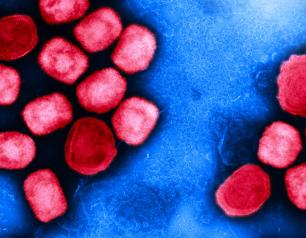74 Results
Long-Acting Injectable Cabotegravir for HIV Prevention Is Safe in Pregnancy
July 23, 2024
Long-acting injectable cabotegravir (CAB-LA) was safe and well tolerated as HIV pre-exposure prophylaxis (PrEP) before and during pregnancy in the follow-up phase of a global study among cisgender women.
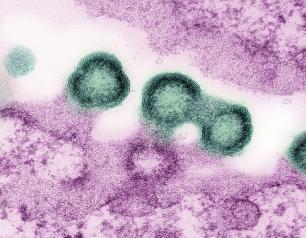
Clinical Trial of HIV Vaccine Begins in United States and South Africa
September 20, 2023
A trial of a preventive HIV vaccine candidate has begun enrollment in the United States and South Africa. The Phase 1 trial will evaluate a novel vaccine known as VIR-1388 for its safety and ability to induce an HIV-specific immune response in people.
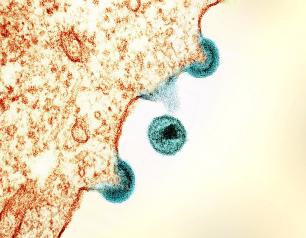
NIH Trial of Rectal Microbicide for HIV Prevention Begins in the United States
October 31, 2024
A clinical trial has launched to examine the safety and acceptability of a novel rectal HIV microbicide douche containing the antiretroviral drug tenofovir. While HIV incidence is slowly decreasing in the United States, 67% of U.S. HIV diagnoses from 2018-2022 were among gay, bisexual, and other men who have sex with men, pointing to the need for expanded HIV prevention options. The mid-stage study is sponsored by the National Institutes of Health’s National Institute of Allergy and Infectious Diseases and implemented through the NIH-funded HIV Prevention Trials Network.
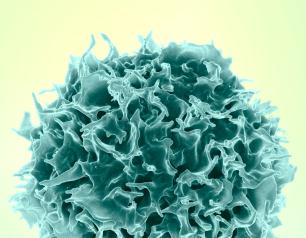
NIH Experts Call for Accelerated Research to Address Concurrent HIV and COVID-19 Pandemics
April 8, 2021
The COVID-19 pandemic is affecting people with or at risk for HIV both indirectly, by interfering with HIV treatment and prevention services, and directly, by threatening individual health. An effective response to these dual pandemics requires unprecedented collaboration to accelerate basic and clinical research, as well as implementation science to expeditiously introduce evidence-based strategies into real-world settings. This message comes from a review article co-authored by Anthony S.
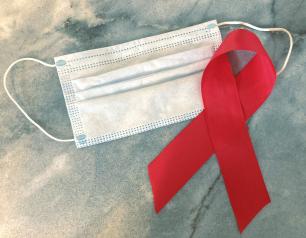
Novel Vaccine Concept Generates Immune Responses that Could Produce Multiple Types of HIV Broadly Neutralizing Antibodies
May 30, 2024
Using a combination of cutting-edge immunologic technologies, researchers have successfully stimulated animals’ immune systems to induce rare precursor B cells of a class of HIV broadly neutralizing antibodies (bNAbs). The findings, published today in Nature Immunology, are an encouraging, incremental step in developing a preventive HIV vaccine.
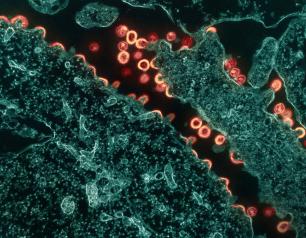
Vaginal Ring and Oral Pre-Exposure Prophylaxis Found Safe for HIV Prevention Throughout Pregnancy
March 5, 2024
The monthly dapivirine vaginal ring and daily oral pre-exposure prophylaxis (PrEP) with tenofovir disoproxil fumarate and emtricitabine were each found to be safe for HIV prevention among cisgender women who started using one of them in their second trimester of pregnancy, according to findings presented today at the 2024 Conference on Retroviruses and Opportunistic Infections (CROI) in Denver.
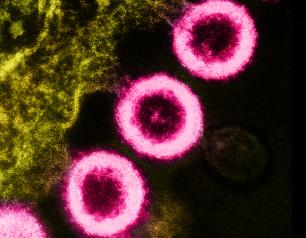
Statement: Long-Acting HIV Treatment Demonstrates Efficacy in People with Challenges Taking Daily Medicine as Prescribed
February 21, 2024
Long-acting antiretroviral therapy (ART) with cabotegravir and rilpivirine was superior in suppressing HIV replication compared to daily oral ART in people who had been unable to maintain viral suppression through an oral daily regimen, according to interim data from a randomized trial. Upon review of these findings, an independent Data and Safety Monitoring Board (DSMB) recommended halting randomization and inviting all eligible study participants to take long-acting ART.
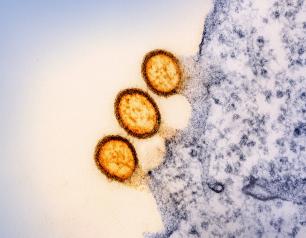
NIH Statement on Preliminary Efficacy Results of Twice-Yearly Lenacapavir for HIV Prevention in Cisgender Women
June 26, 2024
The injectable antiretroviral drug lenacapavir was safe and 100% effective as long-acting HIV pre-exposure prophylaxis (PrEP) among cisgender women in a Phase 3 clinical trial, according to top-line findings released by Gilead Sciences, Inc., the study sponsor. Lenacapavir is administered every six months, making it the most durable HIV prevention method to have shown efficacy in this population.
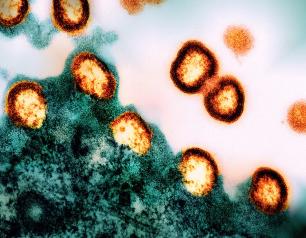
Daily Statin Reduces the Risk of Cardiovascular Disease in People Living with HIV, Large NIH Study Finds
April 11, 2023
A National Institutes of Health (NIH) clinical trial was stopped early because a daily statin medication was found to reduce the increased risk of cardiovascular disease among people living with HIV in the first large-scale clinical study to test a primary cardiovascular prevention strategy in this population.
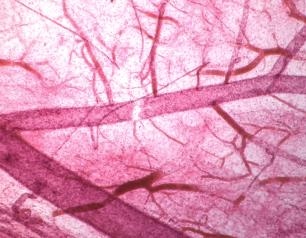
Exploratory Analysis Associates HIV Drug Abacavir with Elevated Cardiovascular Disease Risk in Large Global Trial
July 23, 2024
Current or previous use of the antiretroviral drug (ARV) abacavir was associated with an elevated risk of major adverse cardiovascular events (MACE) in people with HIV, according to an exploratory analysis from a large international clinical trial primarily funded by the National Institutes of Health (NIH).
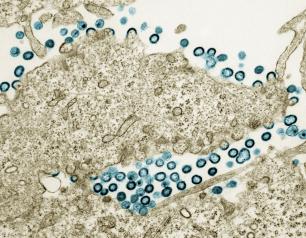
NIH Statement on HIV Vaccine Awareness Day 2023
May 18, 2023
Today marks the 26th observance of HIV Vaccine Awareness Day. The National Institutes of Health applauds the efforts of the collaborative global community of scientists, advocates, study participants, study staff, and funders enabling unprecedented levels of innovation and adaptation in the pursuit of a highly effective HIV vaccine.

NIH Statement on World AIDS Day
December 1, 2022
In the 34 years since the first observance of World AIDS Day, transformational progress has been made in the global fight against HIV/AIDS, yet challenges remain. Today, we at the National Institutes of Health reflect on the 40 million lives lost to the disease and renew our commitment to the research necessary to end the global pandemic.
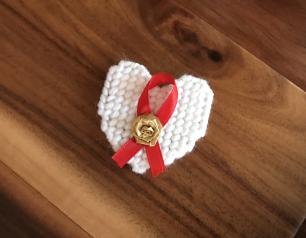
NIH Statement on World AIDS Day
December 1, 2021
Since 1988, World AIDS Day has been an annual call to end the HIV/AIDS pandemic as we remember the many who lost their lives to the disease. Considerable progress has been made since the first World AIDS Day; however, far too many people continue to acquire HIV and die from its related illnesses.
World AIDS Day 2023
December 1, 2023
On this 35th World AIDS Day, the National Institutes of Health (NIH) joins its partners in honoring the lives lost due to the HIV pandemic. For decades, this virus has exacted a tragic toll, affecting people, families, and communities worldwide, threatening social and economic development, and exacerbating stigma, often toward people who already experience discrimination and health disparities.
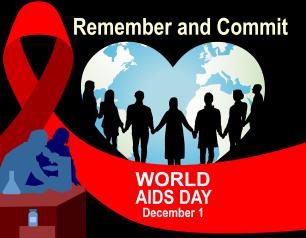
NIH Statement on World AIDS Day
December 2, 2024
Together with our partners, the National Institutes of Health (NIH) commemorates World AIDS Day and affirms our commitment to bolstering the extraordinary gains achieved in HIV science and to persevering until we end HIV-related illness and stigma. As we mark this observance, we celebrate the people who enable scientific progress, honor the loved ones and leaders we have lost, and reflect on the work that remains to ensure the health and life quality of all people affected by, and living with, HIV.
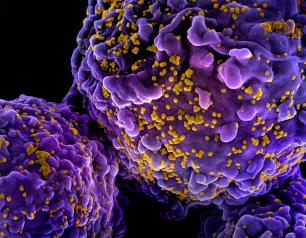
An Isolated Viral Load Test May Generate False Positive Results for People Using Long-Acting PrEP
July 23, 2024
A single laboratory-based HIV viral load test used by U.S. clinicians who provide people with long-acting, injectable cabotegravir (CAB-LA) HIV pre-exposure prophylaxis (PrEP) did not reliably detect HIV in a multi-country study. In the study, a single positive viral load test was frequently found to be a false positive result.
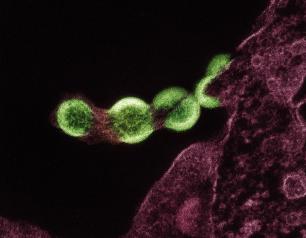
NIH Clinical Trial of Tuberculous Meningitis Drug Regimen Begins
December 7, 2023
A trial of a new drug regimen to treat tuberculous meningitis (TBM) has started enrolling adults and adolescents in several countries where tuberculosis (TB) is prevalent. The trial will include 330 participants aged 15 years and older who have or are likely to have TBM based on signs and symptoms, including people living with and without HIV. Because pregnant women are eligible to enroll in this study with appropriate consent, a small number of pregnant women are expected to be included.
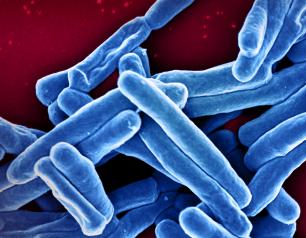
Leadership Transition at the NIAID Vaccine Research Center
February 16, 2022
Dr. Fauci expresses gratitude to John R. Mascola, M.D., as he announces his retirement as Director of the Dale and Betty Bumpers Vaccine Research Center at the National Institute of Allergy and Infectious Diseases.
NIAID Selects Sarah Read as Principal Deputy Director
October 2, 2024
The National Institute of Allergy and Infectious Diseases (NIAID), part of the National Institutes of Health (NIH), has named Sarah W. Read, M.D., MHS, as the principal deputy director for the institute.

NIH-Funded Study Finds Doxycycline Reduces Sexually Transmitted Infections by Two-Thirds
April 6, 2023
The oral antibiotic doxycycline prevented the acquisition of sexually transmitted infections (STIs) when tested among study participants who took the medication within 72 hours of having condomless sex. The post-exposure approach, termed doxy-PEP, resulted in a two-thirds reduction in the incidence of syphilis, gonorrhea, and chlamydia among the study participants.
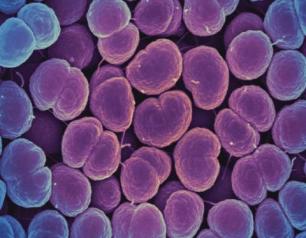
Biomedical STI Prevention Evidence Is Inadequate for Cisgender Women
December 20, 2023
Pivotal studies of some biomedical HIV and sexually transmitted infection (STI) prevention interventions have excluded cisgender women or demonstrated low efficacy among them, limiting their prevention options relative to other populations who experience high HIV and STI incidence. Findings show doxycycline postexposure prophylaxis (better known as DoxyPEP) did not prevent STI acquisition in cisgender women, despite showing promising results in gay, bisexual, and other men who have sex with men and transgender women in a previous study.
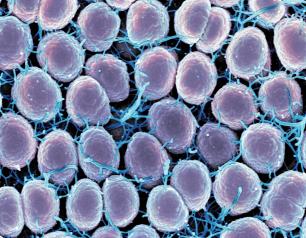
NIH Researchers Uncover New Details on Rare Immune Disease
May 3, 2023
In an 11-year study, researchers at the National Institutes of Health have further characterized idiopathic CD4 lymphocytopenia (ICL), a rare immune deficiency that leaves people vulnerable to infectious diseases, autoimmune diseases and cancers. Researchers observed that people with the most severe cases of ICL had the highest risk of acquiring or developing several of the diseases associated with this immune deficiency. This study, published in the New England Journal of Medicine, was led by Irini Sereti M.D., M.H.S. and Andrea Lisco, M.D., Ph.D.
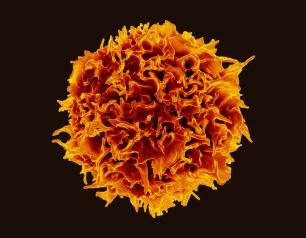
Emergency Department Screening More Than Doubles Detection of Syphilis Cases
September 10, 2024
Providing optional syphilis tests to most people seeking care at a large emergency department led to a dramatic increase in syphilis screening and diagnosis, according to study of nearly 300,000 emergency department encounters in Chicago. Most people diagnosed had no symptoms, which suggests that symptom-based testing strategies alone could miss opportunities to diagnose and treat people with syphilis.
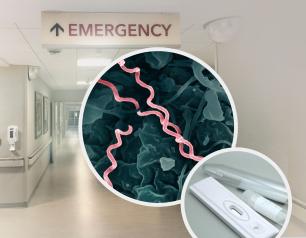
NIH Selects Dr. Jeanne Marrazzo as Director of the National Institute of Allergy and Infectious Diseases
August 2, 2023
Lawrence A. Tabak, D.D.S., Ph.D., acting director for the National Institutes of Health (NIH), has named Jeanne M. Marrazzo, M.D., as director of NIH’s National Institute of Allergy and Infectious Diseases (NIAID).

NIH Experts Review Monkeypox Challenges
August 24, 2022
National Institutes of Health experts write that lessons learned from the public health responses to the HIV and COVID-19 pandemics should help guide the response to the current outbreak of monkeypox.
